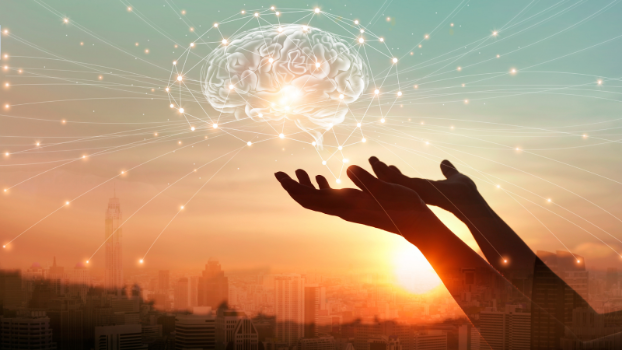
posted
on 6/8/2021
in
BLOGS from St. Anthony
What is Alzheimer’s?
Alzheimer’s is a neurological condition that affects the brain, causing brain cells to die and resulting in severe memory loss and impaired cognitive function. This creates a loss of connection between nerve cells, making it harder for information to pass to different parts of the brain. Though it usually starts slowly, symptoms can rapidly worsen.
As the most common type of dementia, Alzheimer’s makes up about 60-80% of the United States’ cases of dementia. It typically only affects people age 65 and up, however, about 10% of cases are people younger than 65. This is referred to as early-onset Alzheimer’s. It’s important to note that although some memory loss is a normal part of aging, Alzheimer’s is not.
Causes and Symptoms of Alzheimer’s
The causes of Alzheimer’s are still unclear, but experts have identified some important risk factors, including:
- Age: The older you are, the more likely you are to develop it.
- Genetics: Different genes are more linked to developing Alzheimer’s, such as the Apo lipoprotein E gene. However, even if you don’t have this gene, it doesn’t mean you can’t develop Alzheimer’s, and if you do have the gene, you may not develop it either.
- Family History: If an immediate family member of yours has developed Alzheimer’s, you may be more likely to develop it.
Remember, a risk factor does not mean you are guaranteed to develop Alzheimer’s. It just means you may be more likely than the average person.
Alzheimer’s affects the cognitive function of the brain, and can cause affected people to lose their ability to perform daily tasks. The most common symptom is memory loss, which can encompass a variety of tasks, such as:
- Keeping appointments
- Forgetting familiar people
- Suspicious and decreased trust of friends, family, and caretakers
- Forgetting events
- Difficulties with daily tasks
- Disorientation about time and places
- Affected judgement
- Changes in personality
- Decreased social activity
- Trouble walking, speaking, swallowing
Alzheimer’s Treatment
Unfortunately, there is no known cure or treatment for Alzheimer’s, however, there are things you can do to help symptoms and delay the progression of Alzheimer’s. There are a series of medications your doctor can prescribe to help memory and the production of glutamate in your brain, which damages and kills brain cells. Doctors may also prescribe antidepressants, anxiety medications, and antipsychotics to help with symptoms such as agitation, depression, hallucinations, and more. Some doctors also suggest taking vitamin E to aid Alzheimer’s.
There is no known way to prevent Alzheimer’s, but there are several things you can do to prevent general brain decline, such as:
- Exercise
- Healthy Diet
- Cognitive Training Exercises
- Quitting Smoking
At St. Anthony Regional Hospital, we are committed to providing what you need to improve and maintain your health. We serve you through our core values: Compassion, Responsibility, Responsiveness, Teamwork, Dignity & Respect, and Integrity. Our patients see these words in action through the high quality care we provide from our experienced health care professionals. Learn more on our website or give us a call at 712-792-2222
Sources:
https://www.healthline.com/health/alzheimers-disease
https://www.alz.org/alzheimers-dementia/what-is-alzheimers
https://www.medicalnewstoday.com/articles/159442
Filter
- alzheimer's
- dementia